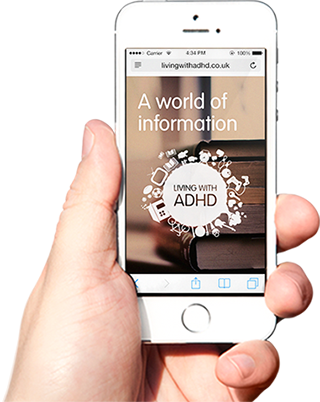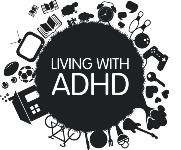Fact or fiction
Frequently asked questions for parents
Is ADHD real?
Yes it is. ADHD is a recognised condition which actually affects around 1 in 20 people of school age in the UK. There isn't one particular reason why people get ADHD. We still don't really know how ADHD develops, but it seems to be biological.
How common is ADHD?
Estimates vary, both between and within different countries, but ADHD is one of the most commonly diagnosed behavioural disorders in children and young people.
3–9% of school-aged UK children may have ADHD
Studies in the UK suggest that ADHD occurs in an estimated 3-9% of school aged-children.
This means that the average UK classroom will include at least one child with ADHD.
Studies in the United States report higher rates of ADHD, possibly due in part to the use of different criteria to diagnose ADHD in the US.
ADHD is more common in boys
ADHD is diagnosed in more boys than girls, by a ratio of at least three to one.
Up to two-thirds of children with hyperactivity disorders continue to have problems into adulthood.
What causes ADHD?
There is no single "cause" of ADHD, and no simple test for the condition.
The exact mechanisms involved in the development of ADHD are not fully understood, but there is a lot of evidence for a biological cause, and for several key contributing factors. The importance of these different factors probably varies from child to child.
Known factors are:
Genes and inheritance
- It has been suggested that there are both genetic and environmental factors implicated in whether or not a child will develop ADHD; further work is needed to establish the precise nature of current findings.
Brain processes
- Studies using brain scans have revealed differences in the development, structure and functioning of the brain in people with and without ADHD.
- Changes involving some of the chemical messengers in the brain – dopamine, serotonin and noradrenaline – are thought to be involved in ADHD.
Environmental factors
- Exposure to alcohol or smoking during pregnancy
- Brain injury during pregnancy
- Low birth weight
Can ADHD be cured?
ADHD can respond well to treatment, and the good news is there are a range of treatments available, including therapies that treat behaviour and various medicines. While there is no exact ‘cure’ for ADHD, many people manage their symptoms with the help of treatment, and so that they have little or no disruption to their lives. Once your specialist team has carried out all the tests, they will know the best management and treatment plan for your child.
Will my child have ADHD for life?
Unfortunately, ADHD doesn’t always disappear as affected individuals reach adulthood, but the symptoms often change. Each individual is different, but there are some overall trends:
- Teenagers with ADHD may be less hyperactive than they were as children, so their ADHD is not so obvious to others.
- Impulsiveness can still be a problem — speaking out of turn, loss of temper, breaking rules.
- Inattention can also remain a problem — being disorganised, forgetful, losing concentration.
- Because of all this, you may find that for your child, the process of becoming an independent adult takes a bit longer than for those who don’t have ADHD.
Is ADHD my child's only problem?
Your child's behavioural problems may be due solely to ADHD. However, ADHD can occur together with other conditions, including:
- Oppositional defiant disorder (ODD)
- Conduct disorder (CD)
- Developmental coordination disorder (DCD)
- Learning disorders
- Language disorders
- Anxiety and depression
- Epilepsy
- Autism
- Tourette's syndrome
- Tic disorders
How long will my child need treatment for ADHD?
Everyone is different, and so 'the most effective treatment' programme varies between individuals. The length of time your child will receive treatment cannot be fixed in advance. Treatment may continue for a couple of years and may even continue into adulthood in some cases. Occasionally, your doctor may recommend that your child stops taking medication for a while so that they can see how they get on; this is called a treatment holiday, and your child should only ever do this when a doctor has told them.
Where can I read more about ADHD?
You may find the following books and websites helpful:
- A Parent’s Guide to Attention Deficit Hyperactivity Disorder in Children. - GREEN C & CHEE K - Understanding ADHD. ISBN 0091817005. Vermillion Press.
- The ADHD Handbook: A Guide for Parents and Professionals on Attention Deficit/Hyperactivity Disorder. - MUNDEN A & ARCELUS J. ISBN 1853027561. London: Jessica Kingsley Publishers.
- 1-2-3 Magic: Effective Discipline for Children 2-12. - PHELAN T.
- ADHD Information services (ADDISS) - www.addiss.co.uk
- Young Minds - www.youngminds.org.uk
The links provided are for educational purposes only. No sponsorship or endorsement is implied
The links and resources provided are for educational purposes only. No sponsorship or endorsement is implied. 1889140163. Child Management.


Resources
Visit our resource centre for useful information and helpful activities for parents, teachers and teenagers living with ADHD.
